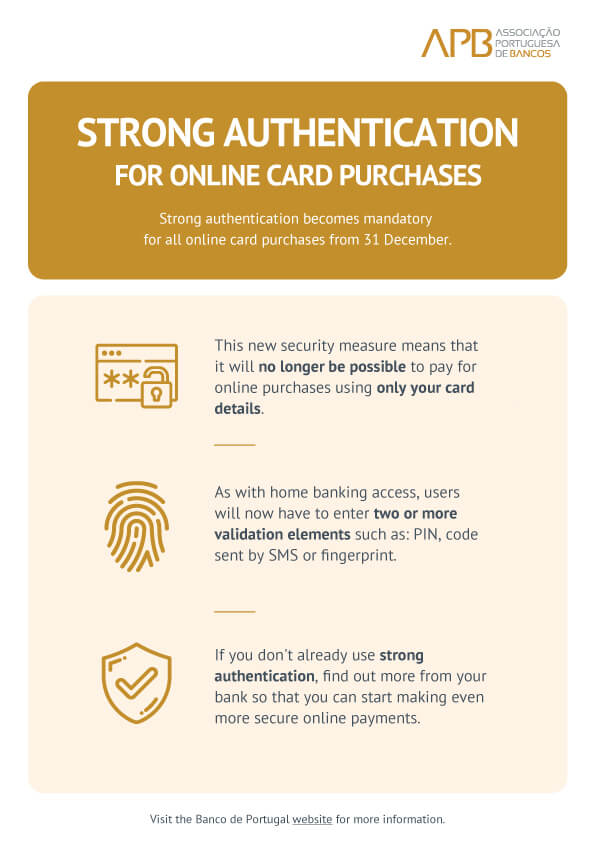Electronic Payment Services
On 14 September, new authentication rules for electronic payment services entered into force in Portugal and other EU Member States, with the security of users in mind. From that date, payment service providers are obliged to undertake the strong authentication of their customers whenever they access their online payment account, initiate an electronic payment transaction or take any action through a remote channel that may involve the risk of payment fraud or other misuse.
The new rules stem from the entry into force of Commission Delegated Regulation (EU) 2018/389 of 27 November 2017, which complements Directive (EU) 2015/2366 of 25 November on payment services in the internal market (second Payment Services Directive). The Regulation, which has direct application in the Member States of the European Union, establishes technical regulatory standards for strong customer authentication and common and secure open communication standards that payment service providers (PSPs), mostly banks, have to comply with.
What are the changes for using home banking or when making payments online?
Strong customer authentication: what is it?
Are you going to buy online using a payment card? Learn how to stay secure


